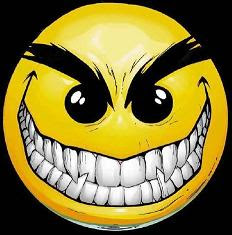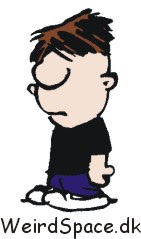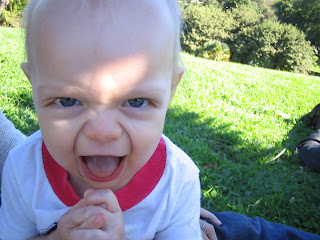today is international no car day, and in commemoration of that, Seoul is not allowing cars to run in the downtown Jongno area (finance district), or in Apkujeong (where rich people live). Most of my young students liked it: conservation and responsibility and (gasp!) sustainability will, I think, be the buzzwords of our generation. Some of my older students were annoyed. In the words of one longtime car-commuter: "The mayor of Seoul is inconveniencing many of his citizens."
I think it's force of habit, really -- it's totally illogical to drive to work if you work in a downtown center (especially one as accessible by subway as Jongno), between traffic and a free-for-all parking situation, it seems it'd be more trouble than it was worth, when the bus system here is efficient enough to get you into town, and all the time you spend walking to the bus stop, you get back in not having to find a parking space downtown. Some people, I think, LIKE to drive to work, so that everybody can admire their mercedes as they wait for the lights to turn green.
In fact, that's part of my "roboseyo save the world" scheme. Here's what I think, after watching human nature at work.
Human beings are simply too short-sighted to individually, all at once, decide to live in sustainable ways. We're just too accustomed to our lifestyles. Even if we DO try to make things better, often it almost works like bartering -- "I planted ten trees last arbor day, so that balances out my driving to the convenience store" or "I compost, so I'll take a long, hot shower," or "I only buy free range eggs and humanely slaughtered beef, so I'm gonna run the air conditioner all night long." (This kind of thinking culminates in the idea of carbon credits -- "I sponsor hectares of rainforest in Brazil, so it's OK for me to fly my private jet around." Why not sponsor the rainforest AND take commercial flights?) Planet Earth is not a merchant to be bargained with, she's more like a mother that needs nurturing, at this point.
So, I think humans are just too short-sighted to make the changes necessary. "But Rob, that's a dim view of humans!" I refer you to Tommy Lee Jones in Men In Black, when asked why aliens are kept secret:
Jay: Why the big secret? People are smart, they can handle it.
Kay: A person is smart. People are dumb, panicky, dangerous animals and you know it.
Individuals can be very reasonable, but humans en masse find it much harder to change patterns than A person, until there's an incentive (like tax breaks and consumption penalties).
(not to knock on the people who DO try to make a difference: all the power to you! Continue being leaders and examples!)
I think, to effect the wholesale changes that will be necessary to avert ice-cap melting, petroleum reserve depletion, and other such disasters, sits on our leaders' shoulders to, um, take leadership here, and make changes that will actually make people WANT to be more environmentally conscious, and as we've learned, the only way to do that is to make it affect people's pocket books. Increase car taxes for people who work in urban areas. Increase large vehicle and SUV type vehicle taxes (for non-families and small families) through the flippin roof. Make gas taxes in the city so high that it's WORTH the extra 20 minutes to use a bus, and then IMPROVE the public transportation enough that people find it worth using. Maybe, abolish private car ownership and allow only company cars. Decentralize cities so that people can bike to work. Create parking lots for bike riders and carpool lanes, offer tax incentives to people who don't own a car. It's just not going to be important to people to stop taking long hot showers until their water shuts off after they've reached their daily quota, or they get dinged, hard, on their monthly bill for every day they go over.
But here's my fantasy. I want to see downtown car bans every day -- it was GREAT walking around downtown Seoul today, seeing nothing but buses on the street. They closed two lanes on either side of the thoroughfare and laid down grass turf, simulating park space. People were chillin' on the street. It was awesome! I'd be so happy if that happened in EVERY major city in the world -- imagine only buses being allowed to access Manhattan Island, and downtown LA, Chicago, Vancouver, London, etc. I mean, something's gotta be done, and I have a sinking feeling that it might happen too little too late, if world leaders keep worrying about economic growth over everything else.

that patch of grass is usually the lane where taxis pick up passengers. Doesn't that look so much nicer?
Another thing on my mind:
Whether you follow sports or not, you've just gotta hand it to Roger Federer. The man has won 4 Wimbledons, and 4 US Opens in a row, in an extremely strong field, with a level of dominance never before seen -- straight set victories over guys ranked top ten in the world, consistently! I won't put a bunch of stats here, but imagine winning the best actor award four years running, or the Booker Prize for Literature, or the Pulitzer Prize, four years in a row; of course, that wouldn't happen, because there are so many politics involved in awards like Bookers, Pulitzers and Oscars, but really, that makes Federer's accomplishment MORE impressive -- in sports, your history or reputation doesn't mean squat, other than a possible mental advantage over your opponent. You STILL have to hit the ball inbounds, return the service, etc. -- every time a new tournament starts, you're back at zero again, unlike in arts, where Martin Scorsese gets handed the Best Director and Best Picture Oscar for making "Just Give It To Me Already" (oops. I mean "The Departed"), and Tom Hanks can "nice guy" his way into two consecutive Oscars (though he really did deserve the first one). Plus, you don't have a team to support you, like Wayne Gretzky or Pele did. In tennis, it's just you. Tiger Woods is impressive, but he's collected his trophies over the course of eleven years, while Federer has basically gotten spitting distance from the all-time major tournament wins record in the space of four years. (But Woods is American, so he'll still get more props and press, even if Federer goes an entire year without losing a single set.)

















